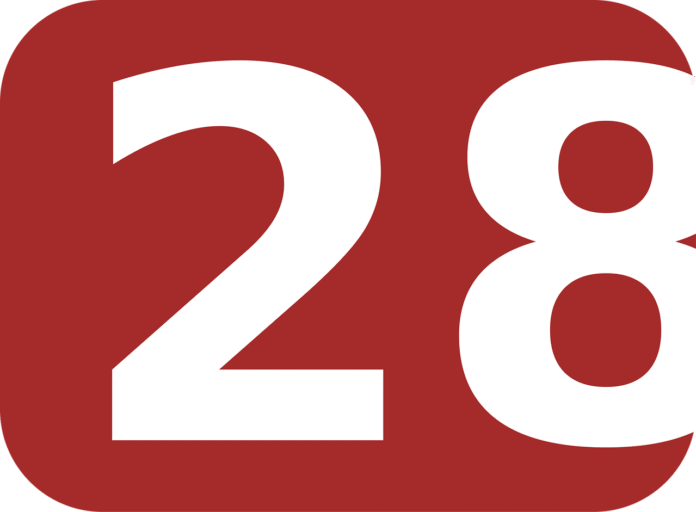By Peter De Keyzer, a founding partner of Growth Inc.
While the US has a single market and a single set of rules, we in Europe are struggling with 27. We do not have the time to wait until all 27 systems have been harmonised.
- The issue: Trade barriers between the 27 European Member States keep our companies small and less attractive to investors.
- The conclusion: With an administratively and fiscally attractive 28th system, which companies are free to choose, Europe can keep pace with the US in innovation and growth.
Quiz question: name five European companies less than 50 years old that are listed on the stock exchange and worth more than 10 billion euros. Only experts can do that. But when asked the same question about American companies, the names are easy to come by: from Nvidia to Costco, from Meta to The Home Depot. The difference is striking, as shown in a graph compiled by American MIT professor Andrew McAfee.
also re-upping this important Andrew McAfee (@amcafee) article, “A Visualization of Europe’s Non-Bubbly Economy” 👉 pic.twitter.com/oSEKGF3e1n
— Adam Thierer (@AdamThierer) December 9, 2024
It is easy to become cynical about Europe and lyrical about the US as a result. But Europeans are no less intelligent or innovative than Americans. An important explanation for the difference is that in Europe, all kinds of barriers prevent good ideas from growing into global companies. From different VAT numbers to different bankruptcy regulations, from different VAT rates to different types of companies. This makes trade between EU countries less easy than trade between American states.
The IMF recently calculated the extent of these trade barriers between European countries. They amount to an implicit import duty of 45 per cent on goods and 110 per cent on services. As a result, we are losing no less than 1,700 billion euros in prosperity every year. Our rules and the lack of harmonisation are holding us back.
Trade barriers between European countries cost us no less than €1,700 billion in prosperity every year.
🔥 The President of the European Commission, Ursula von der Leyen, announces she wants to propose a so-called 28th regime for startups, aka an EU Inc. 💪@vonderleyen wants to see innovative startups scale all across the huge single market of the EU! 🇪🇺🚀 pic.twitter.com/l7ZgDgkzhy
— EU–INC (@euinc_petition) November 11, 2024
Now that the world order is being brutally shaken up, it is time for action. How can we ensure that we get more value out of Europe? That we make it easier for companies to trade across European borders? That we make it easier for companies to scale up?
Politicians invariably advocate “more Europe” as the solution. No one wants to mention that this also means less national sovereignty. Every country considers its own fiscal and regulatory system to be superior. National governments see their fiscal and legal systems as a symbol of sovereignty. Economic interests also vary widely: what is good for industrial Germany is difficult for agricultural Bulgaria. Political resistance grows as soon as voters feel that their country is being victimised by an imposed system. And so we are left with national barriers that keep companies small and less attractive to foreign investors.
"The European Commission had a plan to establish a set of EU-wide corporate rules to allow tech startups to scale up. Companies fear they could still face 27 different regimes." https://t.co/xfmo0YCzaI Why does MEP @repasi not propose a regulation, to boost EU growth? pic.twitter.com/d5nwkcuBMk
— Pieter Cleppe (@pietercleppe) July 17, 2025
The 28th system
While the US has a single market and a single set of rules, we are struggling with 27 systems here. Are we really going to wait until we have harmonised all 27? Then we will probably be waiting for another half a century. We do not have that kind of time.
Therefore, introduce a 28th system: a European fiscal and legal system that is simpler, less regulated and much more attractive from a fiscal point of view. A Special Economic Zone at European level. A European jurisdiction with minimal red tape, a flat low tax rate and rules that do not force entrepreneurs into a straitjacket.
Give all companies the opportunity to opt for this new European system. They will flock to it, not because they have to, but because it works. Every new company or foreign investment will want to be part of it. Give people a better alternative and they will seize it with both hands.
Introducing a 28th system can be done quickly: instead of years of negotiations on harmonisation and details, you can launch a streamlined option tomorrow that companies can sign up to immediately. It is also effective: with low taxes and minimal rules, you attract companies without forcing Member States to give up their own systems.
Look at the Canary Islands, where a special economic zone with 4 per cent corporation tax attracts multinationals. Or Poland, where free economic zones have brought jobs and investment without the country having to overhaul its entire system. A 28th system would replicate that success on a European scale.
History on European law, 28th regime attempt
Last time it was vetoed by 🇩🇪@CDU again in power with Chancelor @_FriedrichMerz .
Will F Merz do (much) better than Merkel?
Germany was against the min 1 euro requirement, which would have made Europe competitive with 🇺🇸 pic.twitter.com/Y5tRf9A9WT
— eu/acc (@euacchq) August 2, 2025
A magnet for talent
By making participation optional, you also circumvent the political resistance that harmonisation provokes. A lighter system lowers the barriers for start-ups, which often get bogged down in bureaucracy when they want to grow across borders. Europe can thus become a magnet for talent and capital, a place where investors no longer look to the US or China, but to us.
Of course, there will be criticism. What about social security? What about inequality between countries? But this system does not have to be a tax haven. It can be cleverly designed, with a fair contribution to European and national budgets. And yes, countries that insist on maintaining their high taxes and heavy regulations are free to do so, but they will find that companies flourish elsewhere. If this prompts some Member States to reform their own systems, so much the better.
The distributed profits taxes in Estonia and Latvia could serve as a role model for the EU's 28th regime.
More here: https://t.co/Gu4cpuAb1J #eu pic.twitter.com/AsHquUfaXT
— Tax Foundation Europe (@TFEuropeTax) July 17, 2025
Europe cannot afford any more procrastination. If we don’t move quickly, we will truly become a fly-over continent. A 28th system is a pragmatic proposal. It builds on what already works and gives companies the freedom to grow and create more prosperity. It finally makes our single market a real market that is competitive, ready to grow and ready for the 21st century.
Originally published in Dutch in Belgian daily De Tijd
Disclaimer: www.BrusselsReport.eu will under no circumstance be held legally responsible or liable for the content of any article appearing on the website, as only the author of an article is legally responsible for that, also in accordance with the terms of use.













